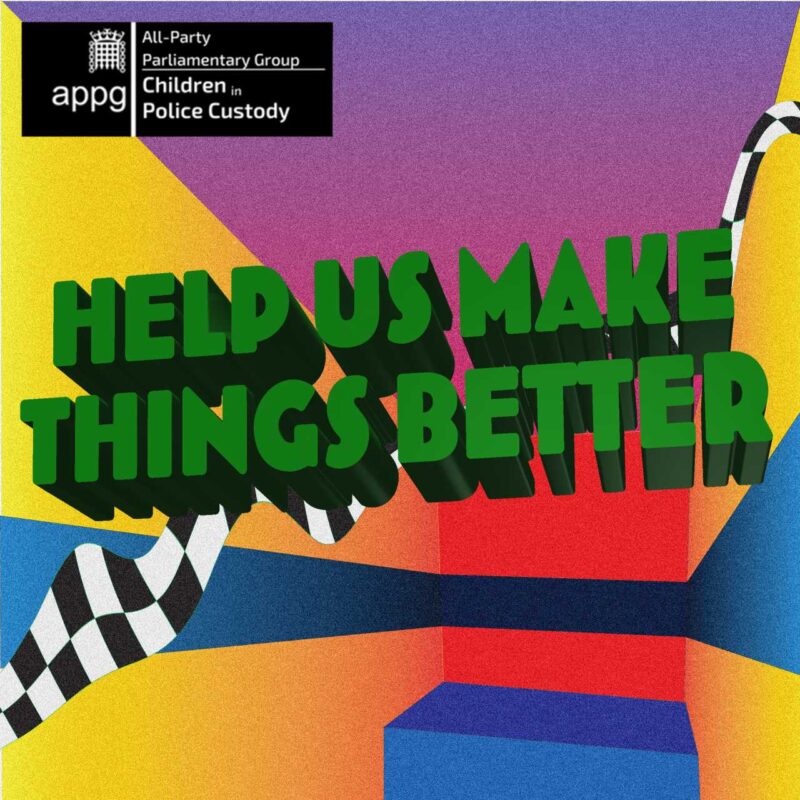Inquiry into Achieving the Rights of Children in Police Custody
The APPG on Children in Police Custody is conducting a Select Committee style inquiry into Achieving the Rights of Children in Police Custody.
The inquiry is exploring the impact of the current arrangements for the care of children (10-17 year olds) in police custody, and when they are strip searched, and is developing recommendations for reform of policy and practice.
We are focusing on five central questions:
- How can the numbers of children being taken into police custody be reduced?
- How can the length of time children spend in police custody be reduced?
- How can we ensure children have effective adult support in police custody?
- What can be done to ensure that every child receives legal advice in police custody?
- How can the numbers of children strip-searched by the police (in custody and in the community) be reduced?
Live Evidence Sessions
So far, the APPG has held five live evidence sessions, hearing from children and young people themselves (25 April 2023), exploring issues relating to the uptake of legal advice in custody (23 May 2023), considering effective adult support for children in police custody (11 July 2023), looking at how to reduce detention times for children in police custody (21 November 2023) and assessing oversight and guidance in police custody (13 March 2024). If you missed any of those sessions, you can catch up on the evidence here.
Call for Written Evidence

We are delighted to announce the launch of the next phase of the Inquiry: the call for written evidence.
The APPG on Children in Police Custody is keen for as many people and organisations as possible to be involved in the Inquiry.
We want to hear your views and ideas for reform to improve the experiences of children in police custody and at strip search.
- There are three separate online surveys, so that everyone who is interested can respond.
- The online surveys are fully anonymous – you will not be named or identifiable if you answer any of these surveys.
(Although those answering in a professional capacity will have the option to give their name/organisation) - If you do take part, you do not need to answer every question, some questions will not be relevant to everyone.
- The call-out is open for responses until 31 March 2024.

